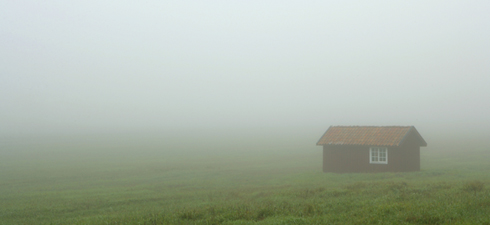Is the idyllic cliché of little red wooden houses, so often associated with Sweden, about to fall apart? Criticism of Swedish rape legislation and the attitude of the Swedish courts to WikiLeaks founder, Julian Assange, voiced by such prestigious American liberals as documentary maker Michael Moore and feminist Naomi Wolf, could put paid to this positive image that may soon be replaced by a more sinister portrayal of Sweden as a feminist dictatorship where the rule of law is not wholly reliable.
A quick glance in the rear view mirror is enough to remind us that the legal battle surrounding Julian Assange is not the only factor to have an impact on Sweden's image. Last year, the file of articles on Sweden, updated every month by the Ministry of Foreign Affairs, included a significant number of entries that strayed from the usual lightweight fare of texts about design, fashion, music, Volvo, detective novels, and royal weddings.
In particular, the stories of two very different men - Uppsala police chief Göran Lindberg, who was found guilty on multiple charges of rape, and former employment minister Sven-Otto Littorin, who resigned amid allegations that he paid for sexual services - have revealed a Sweden more in tune with the dark portrayal of the country in the novels of crime writer Stieg Larsson.
Every country has to contend with received ideas
In the light of these sombre tales that were widely reported in the international media - and in particular, the case of the self-proclaimed champion of sexual equality Göran Lindberg, who turned out to be truly depraved - the notion of civic responsibility in the country [which is one of the founding principles of the welfare state] could soon be supplanted by the image of the "bad Swede."
Every country has to contend with received ideas - Italy is home to pasta and the mafia, the Finns spend all their time in saunas and the Austrians have a tendency to lock up their children in cellars etc. - but few have benefited from a reputation linked to such positive phenomena as social democracy, blue-eyed blonds, efficiency, Vikings, high taxes, Abba, Bergman, Olof Palme, "sexual freedom" as depicted in Ingmar Bergman’s "Summer with Monika," permeable party lines and Pippi Longstocking...
Over the years, we have grown used to compliments based on such clichés. In my own case, I have a particular memory of a teacher in Berlin, who constantly remarked that her native Germany "was not as advanced as Sweden" in terms of equality and the abolition of social hierarchies, which many Germans who want to work in Sweden hope to leave behind.
At the same time, the notion of Sweden as a social-democratic Mecca has taken a battering, particularly in the light of the 2010 elections [which saw the far right take a large number of seats in the Swedish parliament], prompting surprised headlines in the international press.
Wikileaks’ main servers are located in Stockholm
For Fredrik Wetterqvist, an administrator for the commission for the international promotion of Sweden (NSU), we are experiencing a temporary backlash that will not last long. In particular, he argues that interest in the vibrant Swedish economy is a lot stronger than interest in the Assange case.
“At the moment, the UK - which is one of the places where the Assange case is most commented - is completely enthralled by Sweden. A recent report in the Guardian noted that the British Labour Party of the 1970s was very interested in the Swedish model, and that interest in the new Swedish model has become a major preoccupation for the current conservative government. At the same time, I think a lot of people find it interesting that Wikileaks’ main servers are located in Stockholm: and they are wondering why Sweden, which is clearly a refuge for Wikileaks, would take part in a plot against Julian Assange.”
The “2010 Image of Sweden Report” published by the Swedish Institute [whose job it is to promote Sweden internationally] notes that the positive image of the country dates back to the 1970s and 1980s. When you consider that "Summer with Monika" was released in 1953, you can see that developments in perceptions of a society are to say the least slow-moving. At that rate, the events that marked the image of Sweden last year are unlikely to have any real impact before 2031.
Do you like our work?
Help multilingual European journalism to thrive, without ads or paywalls. Your one-off or regular support will keep our newsroom independent. Thank you!
















